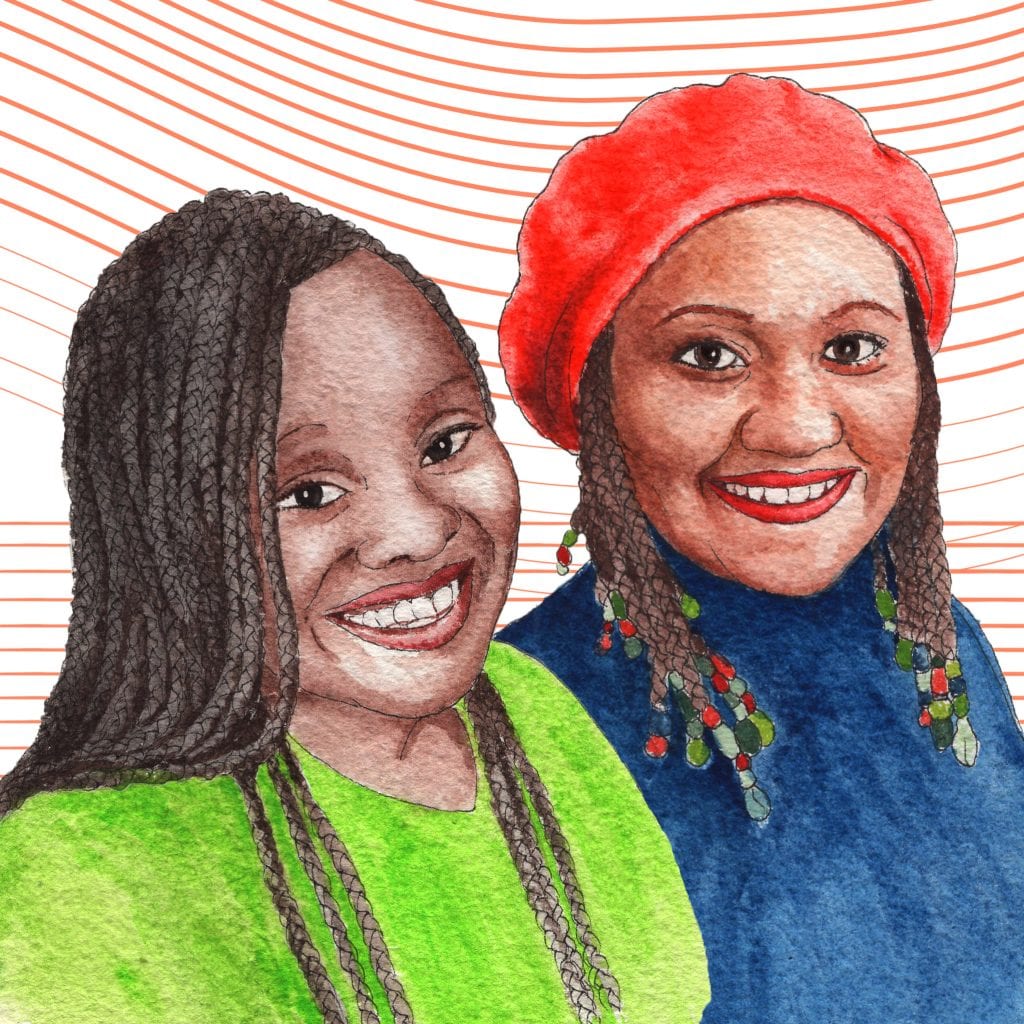In conversation
 Diamond Howard and her “sister friend” and mentor Simone Woods reflect on their friendship, their respective journeys and their reactions to recent demonstrations against racial injustice.
Diamond Howard and her “sister friend” and mentor Simone Woods reflect on their friendship, their respective journeys and their reactions to recent demonstrations against racial injustice.
Transcript
Simone: So how did we first meet and what is your first memory of me?
Diamond: We first met at church. I was maybe about 12 or 13. I don’t know exactly when we became close and started having conversations, but my fondest memory of you, it was one of the quarters that I got straight A’s in high school and I showed you my report card and like you just gave me all this money.
And I was just so shocked. And I sat there and I don’t even think I said thank you initially because I was just so shocked. Nobody had ever like gave me money—outside of my family—for good grades. And I’m like, who is this woman? She’s rich! She’s giving me money for my grades! I was like, that’s going to be my mentor. I like her. I look up to her. I want to be like that.
Simone: That’s really sweet. What’s funny is I don’t remember that at all. And what’s even funnier is I probably had like $15 to my name. But hey, you know, we had to cultivate that good grade so you could keep getting those A’s. So how has your life been different than what you imagined?
Diamond: Growing up, I never really knew what I wanted to be. I knew I had to do something opposite of what other people were doing in my family. College wasn’t even a goal. And so then when my counselor nominated me for the Posse Scholarship and I end up getting into a Big Ten college, that alone changed my perspective on who I was as a person and things that I could go after. It’s not what I imagined. And that’s the beautiful part about it, because it’s amazing.
Simone: Yeah, absolutely. When I was in high school, I don’t even think that I had an image of what my life could be because for a long time I was in a survivalist state of mind. I was really trying to stay alive, trying to make it from year to year. But I knew I needed to go to college because being a person from an inner city, there’s a lot of poverty. And I didn’t want to live my life in a hard place. I knew I had to do something, I just didn’t know what. So similarly to you, when I stand back and I look at my life now, I’m like, whoa! Look at the things that you can do! It’s just amazing to me.
Diamond: What were your thoughts and feelings when you learned about demonstrations surrounding the racial unrest?
Simone: I felt empowered by knowing that demonstrations were happening, especially at the magnitude that they began. It really did make me weep, but it was kind of like a bittersweet thing—like really sad that we had to be having those demonstrations, but also kind of like a rejoicing to see all sorts of people coming together to finally stand up and say this ain’t right and this can’t keep happening.
Diamond: I took pride in the fact that I’m a Black woman. And so I hate that the world doesn’t see people as a life that’s worth living. And so when we got the opportunity to go out and participate in a demonstration, that was beautiful. But there’s work to do. What do I do now to make sure that my student is not a George Floyd, my student is not a Breonna Taylor because I don’t want to keep losing my brothers and sisters.
Simone: Yeah. This is the moment that we have to uplift those who have been pushed down for so long. So this is not everyone else’s moment. This is our moment. This is people of colors’ moment.





